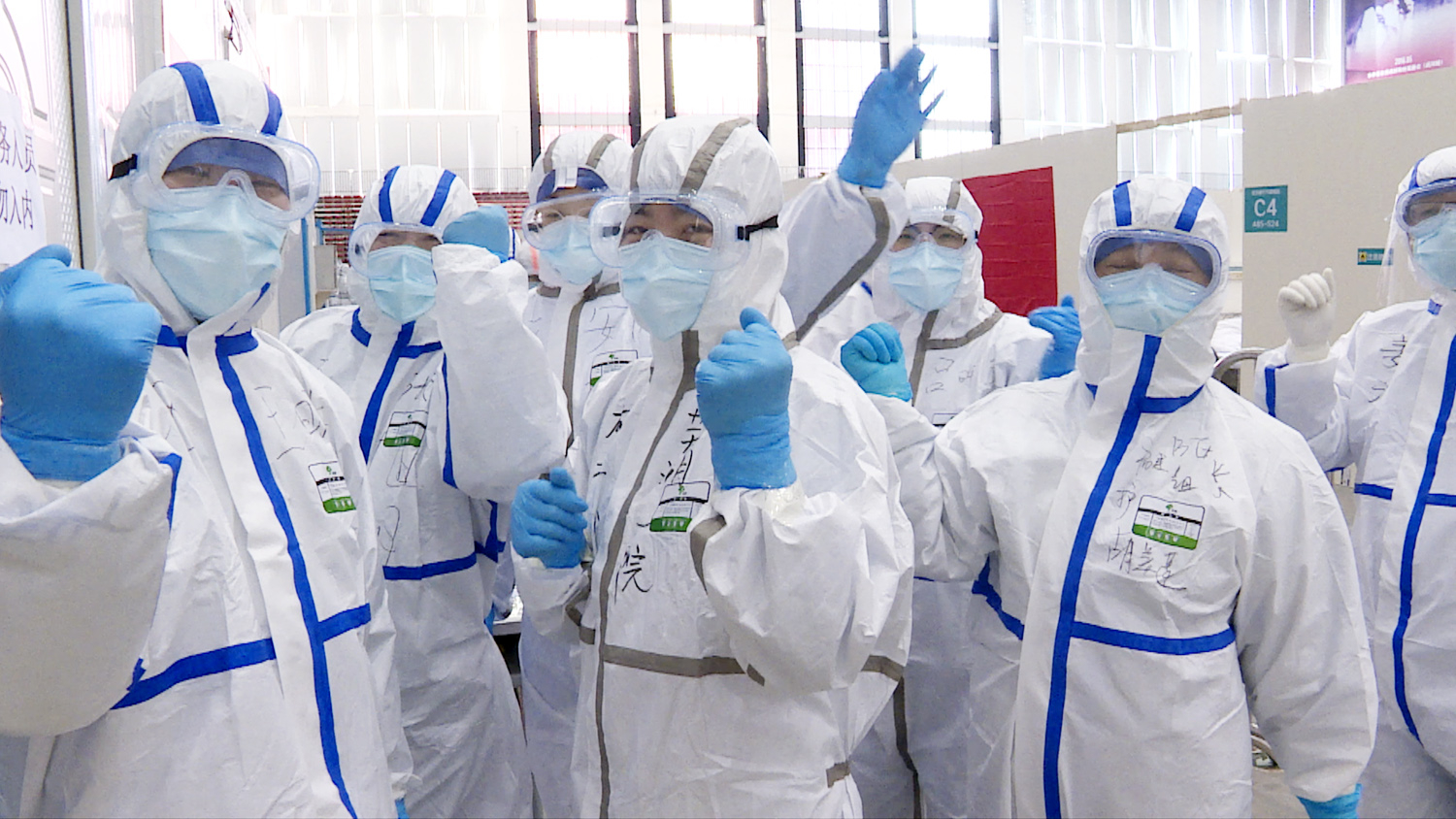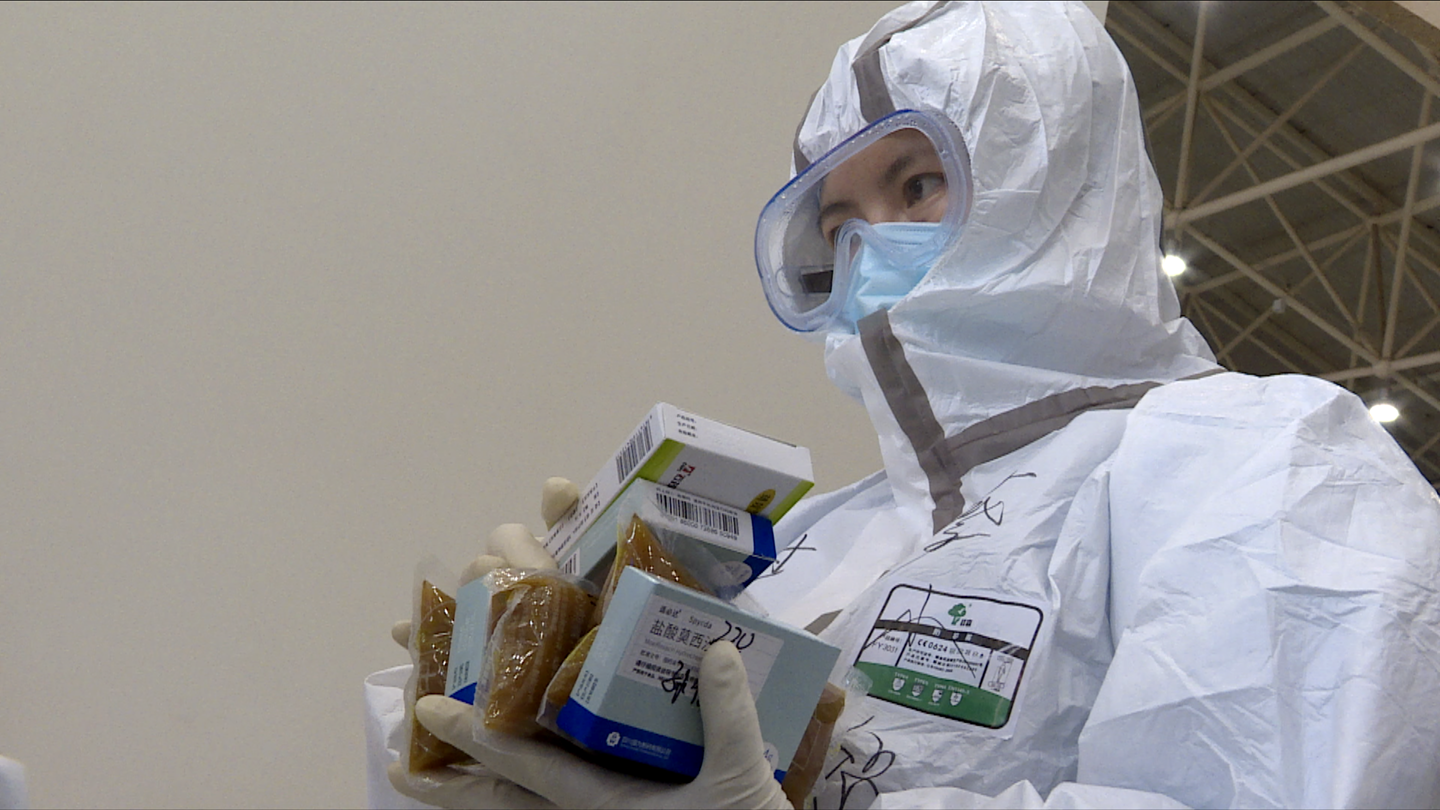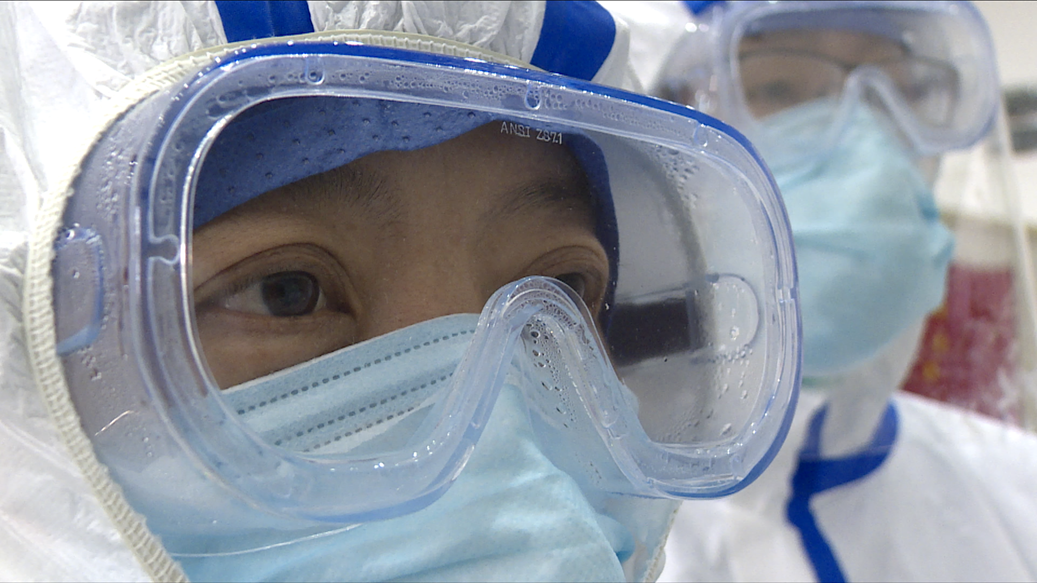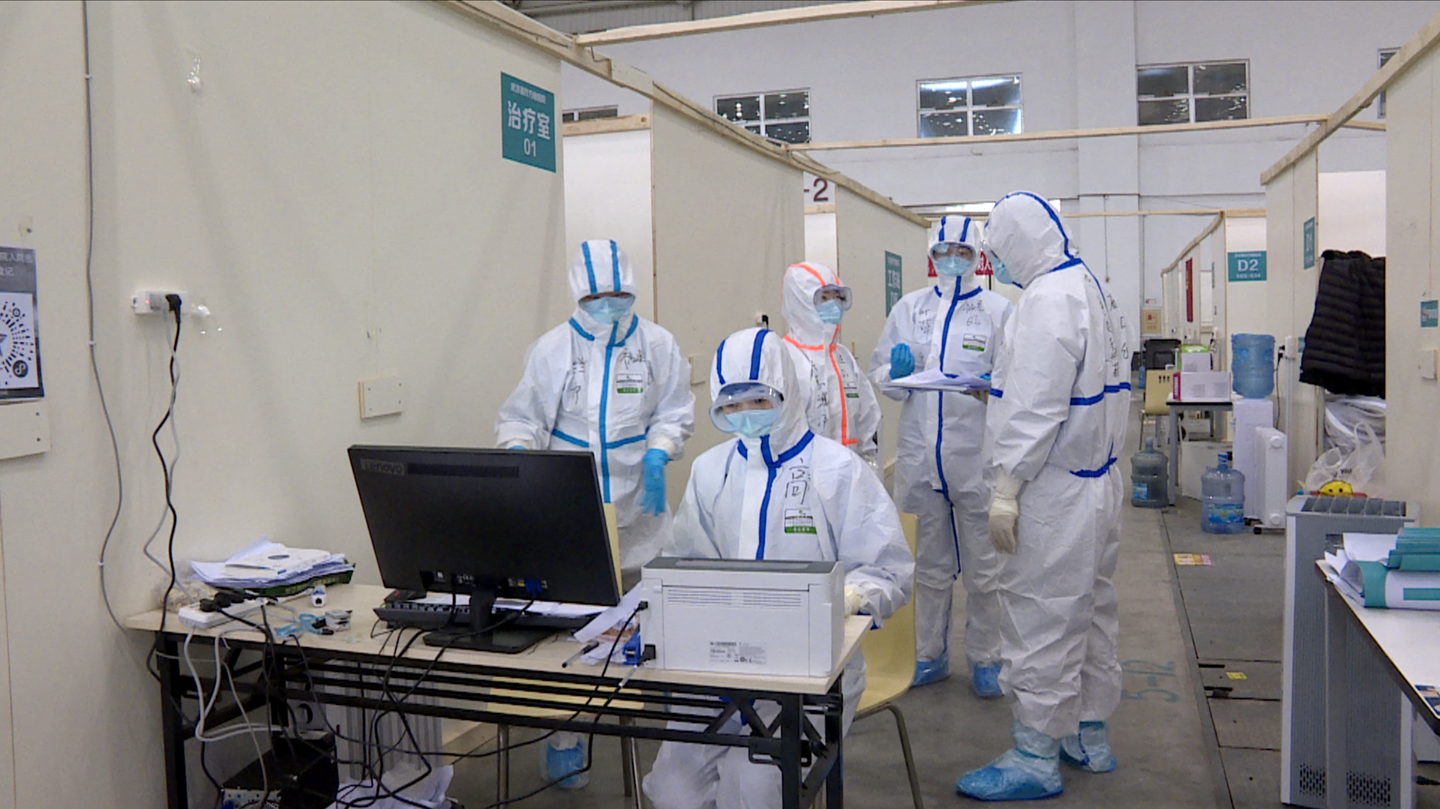03:24

Wuhan has built many makeshift hospitals since the coronavirus outbreak, and experts say they're a great option for treatment.
One of them used to be cultural center, known as the "Wuhan Livingroom", into a temporary hospital, capable of receiving 2,000 patients with minor coronavirus symptoms.
Medical workers are on four shifts, six hours each, 24/7.
"We left the hotel at 6:40, came here at 7:30 to put on the suits. The shift starts at 8 a.m., ends at 2 p.m.," said Wang Xiaodong, a nurse at the National Emergency Medical Rescue Team from Anhui, adding, "Now it's after 2, because we need to wait for the others to take off their suits first."
Wang is one of 13,900 medical personnel that have been dispatched to Wuhan as of midnight February 8, according to the National Health Commission. Saturday alone saw a historic record of 5,000 medical workers arriving at the Wuhan Tianhe International Airport on the same day.

A nurse takes medicine to patients at the makeshift hospital. /CGTN Photo
A nurse takes medicine to patients at the makeshift hospital. /CGTN Photo
Eight national emergency medical rescue teams have joined the fight against the coronavirus outbreak, alongside their comrades at the makeshift hospital at the Wuhan Livingroom, including a team from Xinjiang Uygur Autonomous Region, 4,000 kilometers away.
Health experts say there is no risk of cross-infection between patients, but for medical workers attending to hundreds of patients in the areas, their jobs require taking proper precautions.
"My colleagues take care of each other. They check to see if the gear is still intact. After we come in contact with the patients, we wash our hands," said Cai Lizhou of the national team from Fujian. It was her first day at work.
"Everything is well-organized," said the nurse, "Work handover, patient information, and medicine delivery, they are all well-planned."

A nurse's googles start fogging up after hours of work. Sometimes medical personnel smear a thin layer of liquid detergent to avoid the situation. /CGTN Photo
A nurse's googles start fogging up after hours of work. Sometimes medical personnel smear a thin layer of liquid detergent to avoid the situation. /CGTN Photo
Taking care of hundreds of patients in these sweltering protective suits isn't easy. It takes about half an hour to put a suit on and another half to take it off, with long, complex disinfection procedures.
"This is my fourth day here," said Wu Menghuo, counting on his fingers, already losing the track of time. The male nurse is among the first batch of medical workers who came to offer help at the center.
"We take care of patients with mild symptoms. The workload is relatively lighter. But there are many patients. So still, it's not an easy task," Wu added.
But some are now questioning their feasibility and quality. This may not be the perfect plan, but it's the most feasible short term solution now to curb the spread. Health experts believe the quarantine method may reduce cross-infection for nine million people in Wuhan, including these patients' families.
"I came here for my family and hope for better treatment," said a patient, who came on his own accordance.

Medical staff at the makeshift hospital. /CGTN Photo
Medical staff at the makeshift hospital. /CGTN Photo
"I videochat with my wife every day," his eyes beamed, putting on a smile under the mask, "Just want to tell her everything's fine here."
On the next compartment is a 56 year-old male who came to this facility on Friday, with improving condition now.
"I feel much better. I haven't had a high fever for days, I may have just a low one now," he said softly, "It's a good way to protect my family and keep them away from infection."
On the way out, I overheard a female patient's conversation with her family, saying she's lucky to be here.
"At first, I was shocked to know the diagnosis. I was terrified and cried all night," she told CGTN, "Then I came here and met my ward mates. Medical workers have treated us patients well. I feel much safer and I think we are going to live."